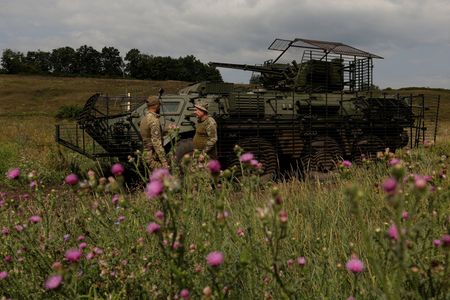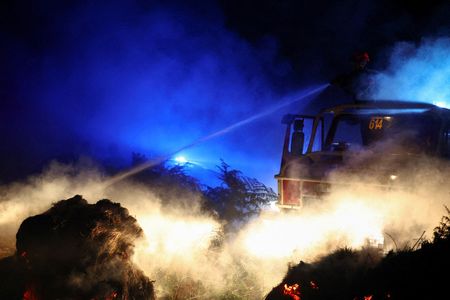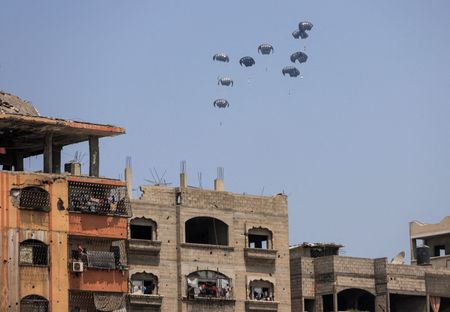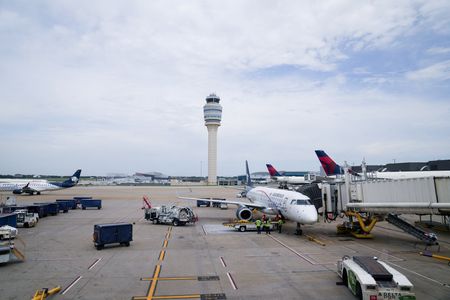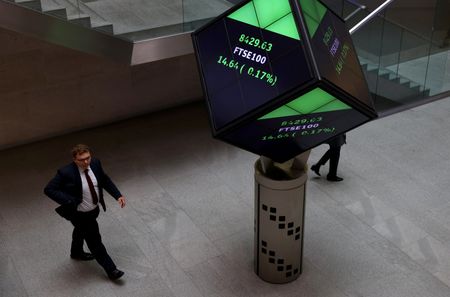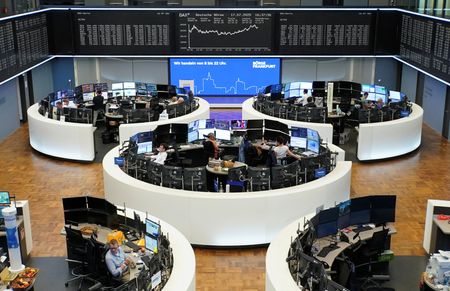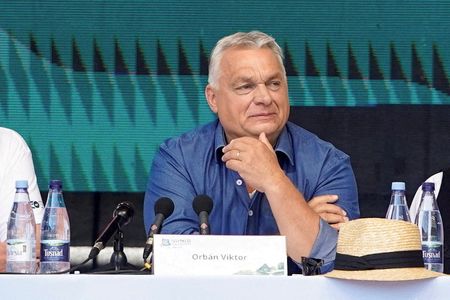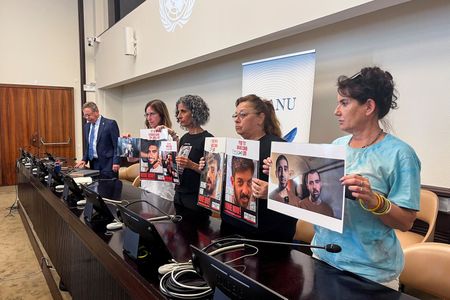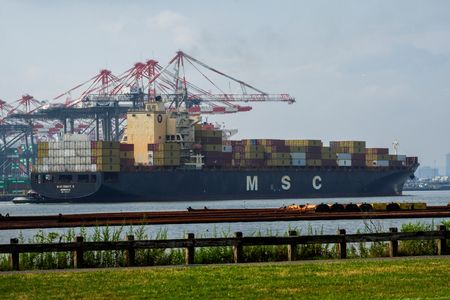By Andrew Osborn and Lili Bayer
MOSCOW/BRUSSELS (Reuters) -Small bands of Russian soldiers thrust deeper into eastern Ukraine on Tuesday ahead of a summit this week between Russian President Vladimir Putin and U.S. President Donald Trump, which European Union states fear could end in peace terms imposed on an unlawfully shrunken Ukraine.
In one of the most extensive incursions so far this year, Russian troops advanced near the coal-mining town of Dobropillia, part of Putin’s campaign to take full control of Ukraine’s Donetsk region. Ukraine’s military dispatched reserve troops, saying they were in difficult combat against small groups of advancing Russian soldiers.
Trump has said any peace deal would involve “some swapping of territories to the betterment of both” Russia and Ukraine, which has up to now depended on the U.S. as its main arms supplier.
Virtually all the territory in question is Ukrainian, alarming President Volodymyr Zelenskiy and his European allies.
Zelenskiy and most of his European counterparts have said a lasting peace cannot be secured without Ukraine’s voice in the negotiations, and must comply with international law and Ukraine’s sovereignty and territorial integrity.
They plan to call Trump on Wednesday to sway him ahead of his summit in Alaska on Friday with Putin, and they have praised the U.S. president’s peace efforts, if not every idea he has floated for getting there.
“An imitated rather than genuine peace will not hold for long and will only encourage Russia to seize even more territory,” Zelenskiy said in a statement on Tuesday after a phone call with Turkish President Tayyip Erdogan, who has hosted previous talks between Ukrainian and Russian leaders.
RUSSIA ADVANCES IN EASTERN UKRAINE
Ukraine faces a shortage of soldiers after Russia invaded more than three years ago, easing the path for the latest Russian advances.
“This breakthrough is like a gift to Putin and Trump during the negotiations,” said Sergei Markov, a former Kremlin adviser, suggesting it could increase pressure on Ukraine to yield territory under any deal.
Ukraine’s military meanwhile said it had retaken two villages in the eastern region of Sumy on Monday, part of a small reversal in more than a year of slow, attritional Russian gains in the southeast.
Russia, which launched its full-scale invasion of Ukraine in February 2022, has mounted a new offensive this year in Sumy after Putin demanded a “buffer zone” there.
Ukraine and its European allies fear that Trump, keen to claim credit for making peace and seal new business deals with Russia’s government, will end up rewarding Putin for his 11 years spent in efforts to seize Ukrainian territory, the last three in open warfare.
EUROPEANS LINK UKRAINE TO THEIR OWN SECURITY
European leaders have said Ukraine must be capable of defending itself if peace and security is to be guaranteed on the continent, and that they are ready to contribute further.
“Ukraine cannot lose this war and nobody has the right to pressure Ukraine into making territorial or other concessions, or making decisions that smack of capitulation,” Polish Prime Minister Donald Tusk said at a government meeting. “I hope we can convince President Trump about the European position.”
Zelenskiy has said he and European leaders “all support President Trump’s determination.”
Hungarian Prime Minister Viktor Orban, Putin’s principal ally in Europe, was the only leader not to join the EU’s statement of unity, and mocked his counterparts.
“The fact that the EU was left on the sidelines is sad enough as it is,” he said. “The only thing that could make things worse is if we started providing instructions from the bench.”
Trump had been recently hardening his stance towards Russia, agreeing to send more U.S. weapons to Ukraine and threatening hefty trade tariffs on buyers of Russian oil in an ultimatum that has now lapsed.
Even so, the prospect of Trump hosting Putin on U.S. soil for the first U.S.-Russia summit since 2021 has revived fears that he might put narrow U.S. interests ahead of the security of European allies or broader geopolitics.
(Reporting by Lili Bayer in Brussels and Andrew Osborn in Moscow; Additional reporting by Alan Charlish, Sudip Kar-Gupta, Lidia Kelly, Krisztina Than and Pavel Polityuk; writing by Ingrid Melander and Jonathan Allen; editing by Kevin Liffey, Mark Heinrich, Alexandra Hudson)

